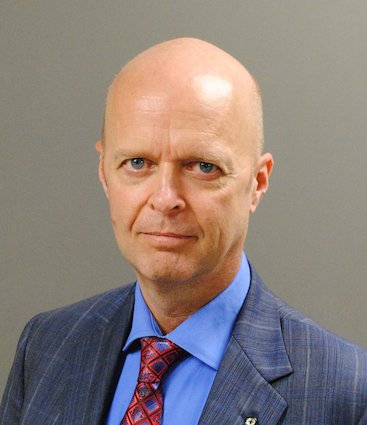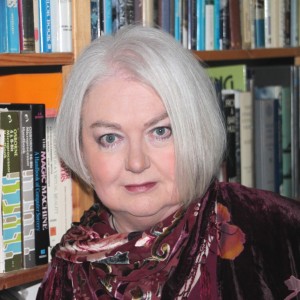Award winning detective mystery author Jayne Barnard has been permanently harmed by medical error: multiple doctors over multiple decades failed to investigate if chronic dehydration from medication was slowly killing Jayne.
Through her own research and tenacity - and in spite of a neglectful and ignorant health care system - Jayne has come back from years of being bed bound and non-functional and unable to communicate, to pursue her creative passion for writing.
Jayne is still quite disabled and needs oxygen and regular saline IVs in order to function for 15 minutes out of every hour. Recently she started a new medication and it is the 1st time in 27 years that her neck muscles were strong enough to hold up her head without pain and collapse.
Jayne shares how she had to orchestrate her own diagnosis and treatment, how she managed to live for years being severely sick and disabled and cared for by her family, and how she created her own incredible stranger-than-fiction narrative by producing award winning writing and snagging a 3 book publishing deal for The Falls Mysteries trilogy from a mostly horizontal life.

Sick Baby
Jayne's father was in the military, air force, so although born in
Cold Lake, Alberta (Canada) and was an ill baby, spent a lot of first year in the hospital - her family was terrified she'd be dead before her first birthday - started as a kidney infection, very high fever
They moved 12 times in 14 years, in 5 provinces, 2 US states, and Germany on a NATO base - Jayne forced herself to overcome her shyness to make friends each time they moved - she learned she had to make her social life, nobody else could do it for her
Jayne went to college for social work, got married, got divorced, back to University for psychology and theatre, almost finished her degree and got a diagnosis of
ME (myalgic encephalomyelitis) in 1992 - onset seemed sudden at the time, but in retrospect the signs were there
Jayne was under a lot of stress being a single Mom with a controlling ex-spouse - there were not a lot of supports for chronically ill people - she was commuting about 70km / 50 miles, both ways and unbeknownst to Jayne, her car was spraying antifreeze and she was inhaling it - she got an opportunistic infection
Jayne had such severe cognitive impairment from being sick that she had a car accident - she went to her doctor and said something is seriously wrong - Jayne always had an abnormal response to exercise, but she was fit and a runner and hiker, biked, swam - but always 48 hours later severe muscle pain
Jayne learned about
post exertional exacerbation of symptoms, now recognized as hallmark symptom of ME, was always an experience of Jayne in response to exercise - but when she got sick she could barely walk 2 blocks
Her GP wanted to send her to a psychiatrist - but Jayne kept insisting it was physical and he sent her to the town's only internal medicine doctor and he was dedicated to finding out what was wrong - Jayne got a diagnosis of '
chronic fatigue syndrome' from a specialist
But the specialist said there was nothing they could do for her - that was crushing for Jayne, she was at the start of her career, in peak physical shape, and this diagnosis hit like a ton of bricks - if she didn't have 2 small children she probably would have committed suicide
The internal medicine doc prescribed steroids, and they kept Jayne on her feet for 2 years - and this is the 1st of 2 medical errors impacting Jayne's life: he also prescribed
aldosterone /
spironolactone - it acted as a diuretic and it pushed Jayne into chronic dehydration causing long term tissue damage and was not corrected until 2014
Crippled and Home Bound
So it was 20 years of chronic cellular dehydration and none of the many specialists she saw ever looked into it - one of the global problems with an ME diagnosis is that patients are so scared of being accused of psychosomatism they don't seek mental health support - Jayne was in great need of grief counselling - she's been carrying this grief for 25 years
Grief for loss of career, most of her friendships, ability to raise her children as she wanted to, loss joy of further education - she lost her entire life in about 4 months and had to keep it together for her children - Jayne thinks everyone who gets a serious diagnosis should be offered counselling support
Fast forward 8 years (in 2000) Jayme met her 2nd husband and moved to Calgary (where she still lives) - the drier weather and higher altitude put more stress on her dehydrated body - her house was at same elevation as Banff ski resort, so in the highest elevated city in Canada - from the day she arrived in Calgary her health deteriorated
Until 5 years later she was completely crippled and home bound with teenagers - Jayne was too sick to have care: sound hurt, light hurt, weight of clothing hurt, very often too sick to eat - the smell of cooking food would make her to ill to eat for 12 to 24 hours
But caregivers need instructions and that takes energy - writing a 2 sentence instruction for a caregiver was beyond Jayne's ability for 5 years - she could not finish a sentence verbally or in writing - Jayne attributes it to lack of blood flow and oxygen to her brain - Jayne is currently receiving oxygen from a tank to her nostrils
Jayne started drinking rehydration fluids instead of just water, and started to receive supplemental oxygen, her brain started to wake up, but it took about 2 years - yet none of the many doctors even mentioned dehydration
Jayne still doesn't know if she has mild or medium or severe ME because so many things have gone wrong - her liver and blood vessels are impaired, and genetically she can't expel toxins very well - her body is a toxic waster dump, stored in fat, and when Jayne burns fat she feels like she's being poisoned
Jayne is active with the online community to give back to the people who kept her alive - she sees a lot of people globally with similar symptoms - Jayne suspects that ME is a unique disease for everyone depending on their genetics and environmental exposures
Now in ME community, there is greater recognition of benefits of IV saline - in 2012 when Jayne started more research - Jayne had to urinate frequently, impeding her ability to rest and sleep - in watching a video of research
Dr de Meirleir that he treats all his ME patients with
diabetes insipidus protocol and an antidiuretic

Geographical Cure
Jayne had to convince her GP to prescribe her an antidiuretic, Jayne had to jump through medical hoops for 6 months to get a paediatric dose to allow her to sleep for 8 hours - this was a huge step in addressing her chronic dehydration - the downside is it washes out sodium creating electrolyte imbalance - Jayne does not understand why she was not told that up front
Jayne tried the 'geographical cure': if she lives somewhere else, it will be different - so she moved to sea level on the west coast of Canada for a winter - but Jayne didn't realize the move would change how much diuretic medication she needed - her sodium levels dropped and she was nearly comatose
Because
hyponatremia (low sodium) symptoms are almost identical to post exertional malaise - nausea, aching, brain fog, etc - nobody around her realized it was not another ME crash - but her new landlord saw her and said he had to take her to emergency and they gave her high sodium IV for next 48 hours
But Jayne had neurological damage for next 2 years - auditory hallucinations, visual distortions, and severe memory impairment - took a year to regain cognitive function
A lot of her memories are still gone, a blessing and a curse - for so many years she was filled with grief and rage, and a lot of those memories of pain, anguish, despair have faded and that is a relief
As she recovered, her muscles and joints moved in new ways - her brain was able to think through the stages of a problem again, a huge benefit as she know had the benefit of a thinking brain - rehydration and freedom to mover her body without pain was huge for Jayne
She was able to attend and dance for 3 minutes at a family wedding, when people weren't expecting her to even stand - in her research, she found that ME
doctor David Bell experimented with giving his patients a litre of saline a day and it cleared their cognitive fog and orthostatic intolerance and improved their quality of life
Jayne tried to get her doctor to prescribe IV saline but was declined - doctors only consider it for emergency situations and they don't realize people with ME are in emergency situations every day - but Jayne found a functional medicine doctor that would prescribe IV saline every 3 weeks in dry climate, and 4 weeks in wet climate to keep her sodium and fluids up
This allowed Jayne to double the number of steps she can take before collapsing from
POTS - process food better, less nausea, think more clearly - but the best thing is that from 2014 she's been able to write again - a passion she thought forever lost - it was a huge boost psychologically
Jayne still has ups and down physically - a cold will put her in bed for a month - some days have to keep light low - can't drive in traffic due to constant influx of stimuli - live a quiet and isolated life, but well within confines of her home
When The Flood Falls
Jayne's family struggled with her health when she got sick - a lot of responsibility fell on her oldest daughter, age 14 - she had therapy in her early 20s to deal being forced to grow up quickly and fear of only reliable parent was going to die
Jayne's younger son was buffered by his older sister's support, but resentful that Jayne couldn't be there for him as a teenager - and he hasn't completely accepted that Jayne is physically ill - so he carries a lot of anger
Jayne and her second husband thought Jayne would be more functional if she didn't have to work outside the home - but she got worse and he had to make a big adjustment and learn caregiving skills - but when her daughter graduated from university she moved back home so Jayne's husband could fulfill his life long dream to sail across the Atlantic on a tall ship - he trained for a year, was gone 7 months
Jayne didn't want her poor health to further limit her family, so they would hike on the weekend and take pics to show her - having a child psychology degree, access to internet, ability to analyze research and supplements were a big advantage - even so, the lack of medical support nearly killed her multiple times
Jayne's book, When The Flood Falls, was started in 2004 but had to stop 3 years later when too sick - she created a secondary character "Jan" who has ME - ostensibly the book is crime novel / suspense, but Jayne was also showing the stigma attached to ME
"Jan" is sensitive to light, sound, house bound, vulnerable to treatment fads, like stimulants - Jayne was able to accurately describe the stimulant's effect on a body that has little energy
In 1998, from what Jayne could glean from the internet, she hypothesized that ME was a mitochondrial impairment - now 20 years later scientists are finally doing those tests and have found energy impairment - ME patients are in a constant state of brown outs - so not surprising the array of ME symptoms
Sometimes it is easier to process grief by putting onto a fictional character - Jayne did a lot of grieving writing the character of "Jan" - watching every one else live their lives - it was a way to detach from the grief and make it bearable
Early feedback on "Jan" was she was too depressing for a commercial audience - feedback from ME community is that Jayne stayed true to the ME experience while still making it palatable to the general public - Jayne's book and character also serve as outreach / awareness of ME to suspense readers
Where The Ice Falls
A typical day for Jayne is about 45 minutes of each hour laying on her chaise in a dimly lit room - this gives Jayne about 15 minutes of energy to be slowly mobile to make tea, putter around - Jayne saw a new internal medicine doctor recently and told him about her level of functioning - the doc said 'that must be terrible' and Jayne said that's the best she's functioned in 15 years
Jayne can't sit up to write unless she had a neck and shoulder and wrist braces - so she writes on her laptop on a wheeled hospital tray - she uses a light weight and ergonomic mouse and keyboard - always has pillows to support her head - for her last 2 books her voice has gotten strong enough that she can dictate to her phone, and it sends it as text to her laptop - she then edits later when she has energy
It takes Jayne a long time to write because she has to rest so much in between - but if she could not write, it would be harder for her to retain hope and optimism - Jaynes' writing process is unique and counter intuitive - she was in speech therapy as a child because she didn't talk - it took her a while to trust that verbalizing her writing would work - now she's written 2.5 novels that way
Jayne has just submitted the 3rd manuscript for the Falls series - her first book
When The Flood Falls won the
Unhanged Arthur, Canada's top prize for an unpublished mystery manuscript in 2016 -
Dundurn Press offered Jayne a 3 book contract, a trilogy
Jayne is pleased her 3rd book, Why The Rock Falls, leaves the characters in a good place - and that readers will identify with "Jan's" improved health with their own lives - while ME is forever, it doesn't mean we have to stop living
At every stage of Jayne's recovery, there was a fear it would be temporary and that if one thing went wrong, the house of cards would collapse again - in 2013 her goal was to walk 50 steps and it took 3.5 months and she had to rest every 20 steps - taking a step off the sidewalk was risky - it is an act of faith that one extra step is not going to destroy her
Jayne's family has had to adjust to her improved health - for many years she was not strong enough to raise her voice to express her wishes - so her gains in autonomy were a big shot to them
Health Gains
Jayne helps promote her books by doing stuff online since she's not healthy enough to do in person book signings - her 2nd book "Where The Ice Falls" is a Christmas mystery and also deals with assisted dying - something ME patients often consider and would do if they had the energy - Jayne lived a good part of her life suicidal - but under Canadian law she would not be eligible for assisted death
Many people with ME would like that option because daily life with ME is unbearable - Jayne's initial reaction to finishing her trilogy was "I'm done, I don't need to push myself any more, I could die tomorrow and I'd be okay" - she's not used to not having every day be struggle - what has kept her going for 5 years was getting these book done
Jayne thinks she may her 15 minutes of energy each hour and write a radio play with some of her writer friends - she cannot not write, but it doesn't have to be for publication - and she wants it to be fun - 2 years ago Jayne started on low dose naltrexone helped calm her brain down - 8 months ago she started on low dose of
mestinon based on research by Dr
David Systrom at Brigham Women's Hospital
He found that low dose mestinon helped get more nutrients into cells and alleviates some of the aerobic deficit - not everyone is a responder - the 2nd day she was on it, a long time friend said she looked taller - it was the first time in 27 years her neck muscles were strong enough to hold up her head without pain and collapse
A friend of Jayne's son was brain damaged from an appendix operation because of his unknown mitochondrial disorder and the anaesthetic - so patients need to make their surgeons aware so they are safe
Jayne hopes that people living with ME can find something joyful, even if its only 5 minutes a day - so they get a sense of peace and progress and hope
Connect with Jayne Barnard:
Twitter: https://twitter.com/J_E_Barnard
Facebook: @FallsMystery https://www.facebook.com/FallsMystery/
Instagram: saffron.hemlock https://www.instagram.com/saffron.hemlock/
______________________________________________________________
Like what you read / heard / watched?
Support Medical Error Interviews
Be a podcast patron
Support Medical Error Interviews on Patreon by becoming a Patron for $2 / month.
Or $5 / month to be a Premium Patron and watch the video versions of Medical Error Interviews.
Be my Guest
If you are a survivor, a victim’s surviving family member, a health care worker, advocate, or policy maker and have a medical error experience you would like to share, send me an email with a brief description of your experience: RemediesPodcast@gmail.com
Scott Simpson:
Counsellor + Podcast Host + Patient Advocate
I am a counsellor, patient advocate, and - before I became sick and disabled - a passionate triathlete. Work hard, train hard, rest hard.
Like me, many of my clients at Remedies Counseling have experienced the often devastating effects of medical error.
I have been living with HIV since 1998, and thanks to research and medications, it is not a problem in my life.
I have been living with ME (myalgic encephalomyelitis) since 2012, and thanks in part to medical error, it is a big problem in my life.
Need a Counsellor?
If you need a counsellor for your experience with medical error, or living with a chronic illness(es), I offer online video counseling appointments.
**For my health and life balance, I limit my number of counseling clients.**
Email me to find out if I have any counseling appointments open: RemediesOnlineCounseling@gmail.com

Remedies Counseling - Making Life Better
Have you had traumatic experiences with the health care system?
Are you living / struggling with a chronic illness?
Do you need a counsellor with proven expertise and experience to make life better?
Book an appointment with Scott online at RemediesCounseling.com
RemediesOnlineCounseling@gmail.com










No comments yet. Be the first to say something!